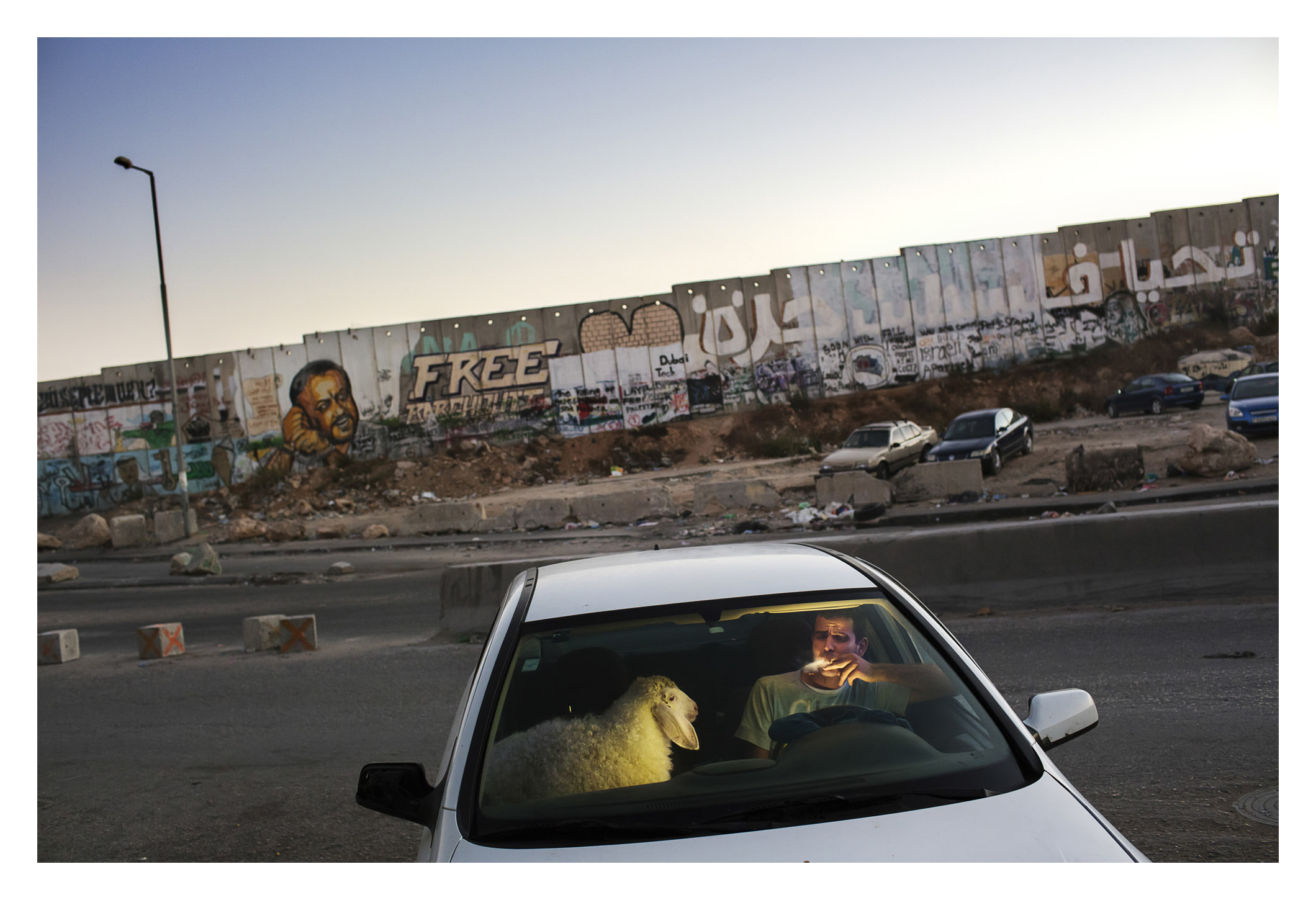
After grueling traffic at the Qalandia checkpoint, a young man enjoys a cigarette in his car as traffic finally clears on the last evening of Ramadan. He is bringing home a sheep for the upcoming Eid celebration.
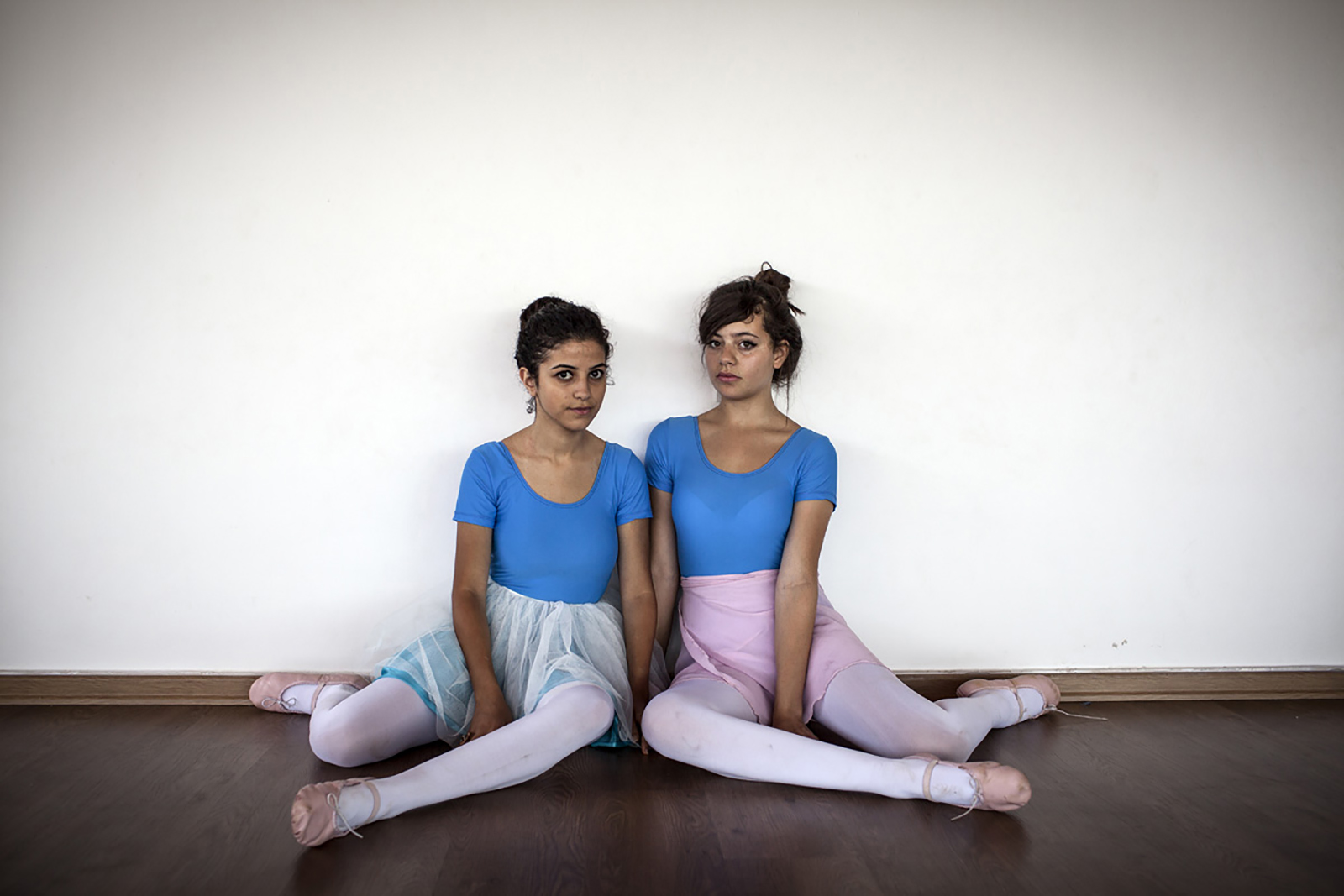
"Unesco" Jordan public government schools with Iraqi students. Girls public government school--Amman, Smeisani. Iraqi twins, Zain and Zainab, age six, have spent their lives in Jordan, never seeing their homeland of Baghdad. Well adjusted to their school environment, the girls proudly say in unison "we are iraqi!" when asked about where they are fun. They are top students.
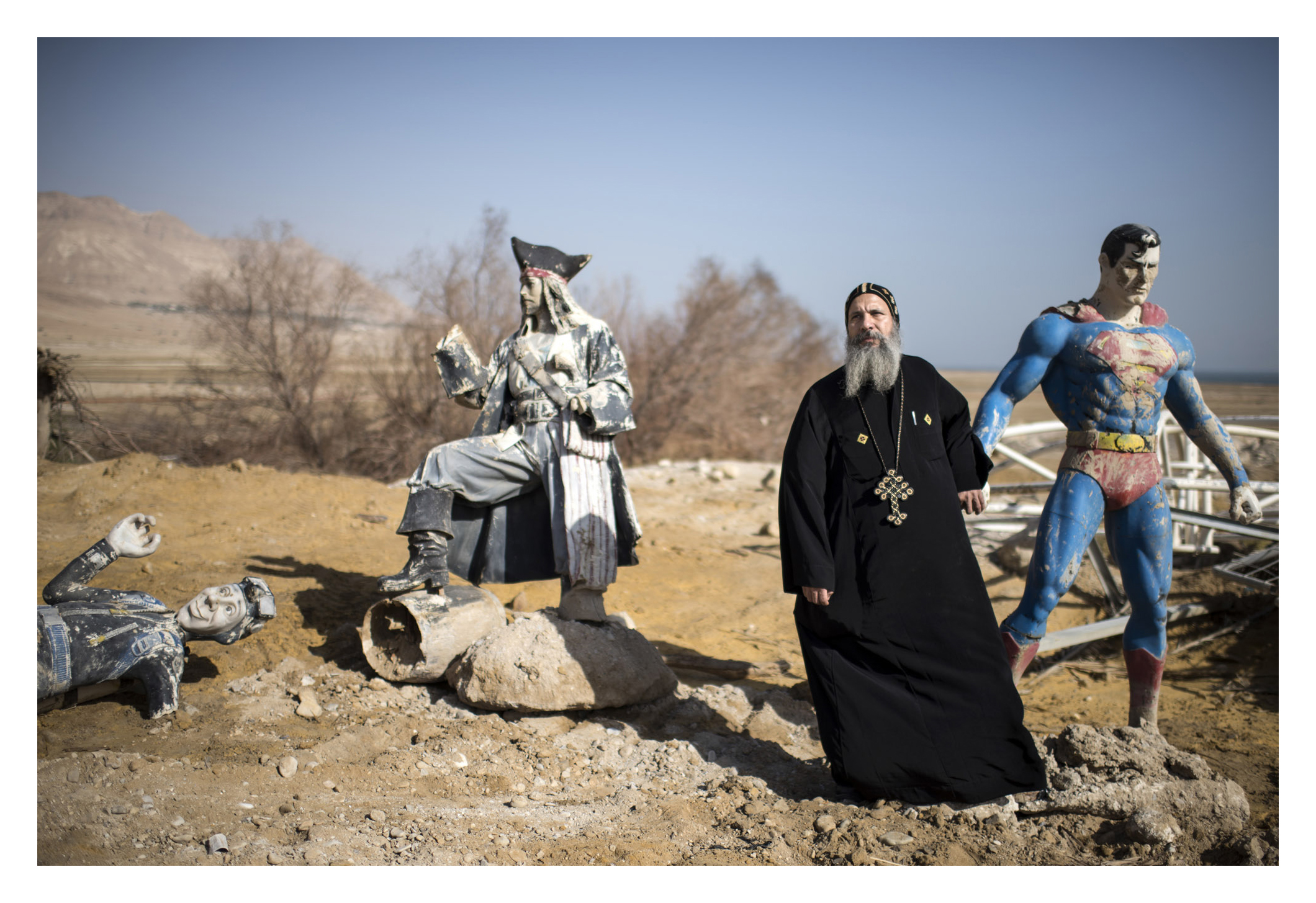
Egyptian coptic priest father Arsanios at Dead Sea, a day before the December bombing of Coptic church in Cairo (2016). Coptic Egyptian priest at the Dead Sea a day before the December bombing of Coptic church in Cairo (2016). Once the main Christian denomination, the Coptic Church has been reduced to a scattering of communities across the Middle East, centred mostly in Egypt, where they form the main Christian minority.
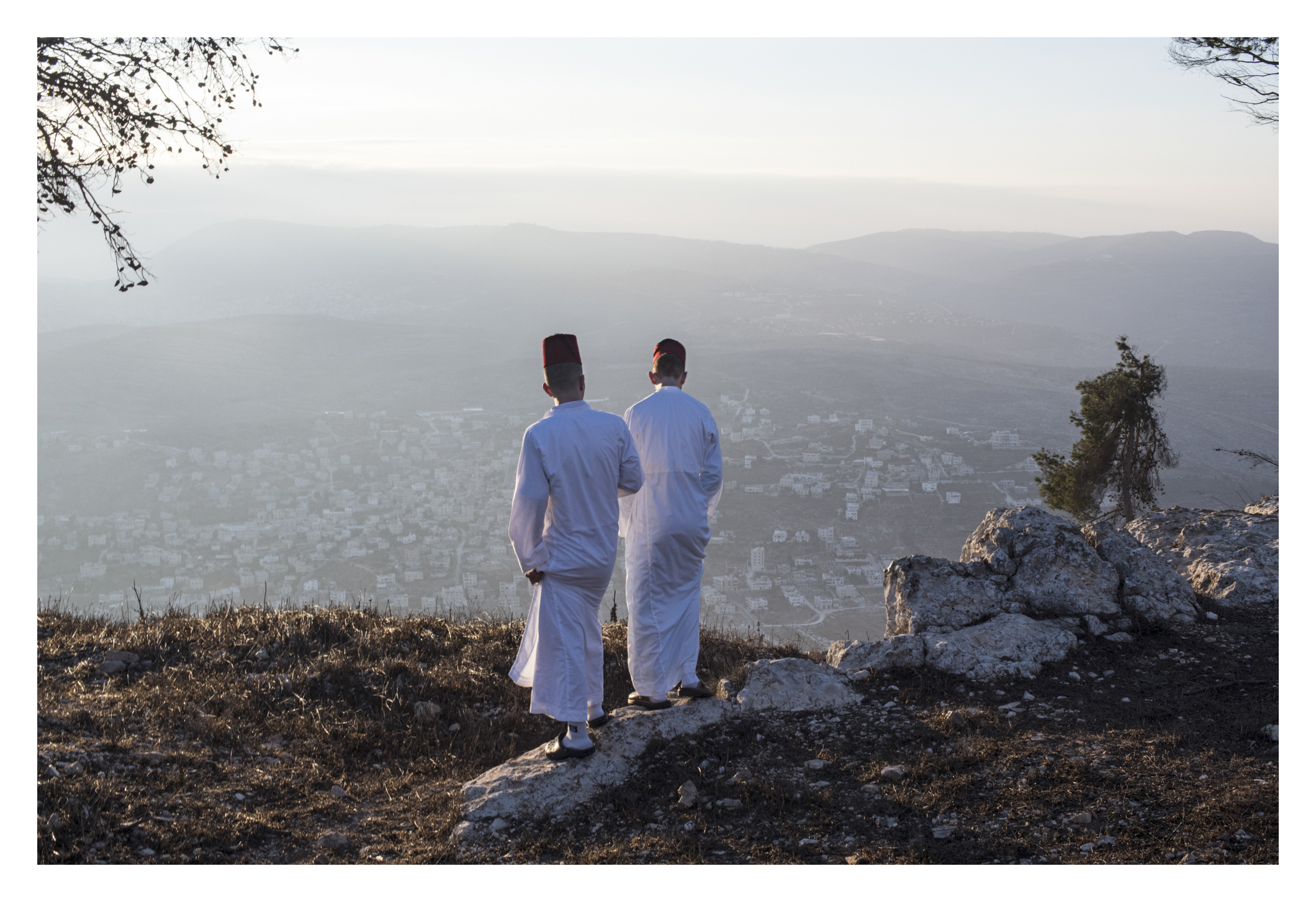
After the final prayer with book , youth of assorted ages and men take a pause on mountain and relax, overlooking the view of mountain after sunrise. Here, they are standing near the enclosed area they say is where Isaac's father was tested for sacrifice. (daniel, please read) Share a deep dive into the world of the Samaritans, an ancient sect in the West Bank. The story follows an Samaritan historian/spokesperson as he tries to find some valuable antiquities that were stolen from their temple. The story is about ancient bible manuscripts stolen from the Samaritans’ synagogue in the West Bank, and the quest to track them down and discover who stole them. The story goes deep into the world of the Samaritans, one of the world’s oldest and smallest religious sects, and how their ancient Torah manuscripts are central to their identity. The sunrise pilgrimage on Wednesday is a dramatic visual example of what makes this sect unique and mysterious, and why they prize their Torah manuscripts, with a Samaritan priest thrusting a silver-cased Torah scroll into the air as Samaritans surround him atop their sacred mountain. Currently, the population of Samaritans living in the community in Mt Gerizim is 800, and they only do an exact count each January 1. The numbers will be updated by end of this year. It all begins in the Mt Gerizim synagogue, wailing and praying from 2 am before they leave and begin marching to peak of sacred mountain. This happens just before sunrise, at 4/4:30, for hours of prayers and rituals around the sacred book, along with a stunning sunrise pilgrimage on the Samaritans’ holy mountain. A Samaritan priest thrusts a silver-plated torah scroll toward the heavens, surrounded by the samaritans. Several times this repeats during the service.
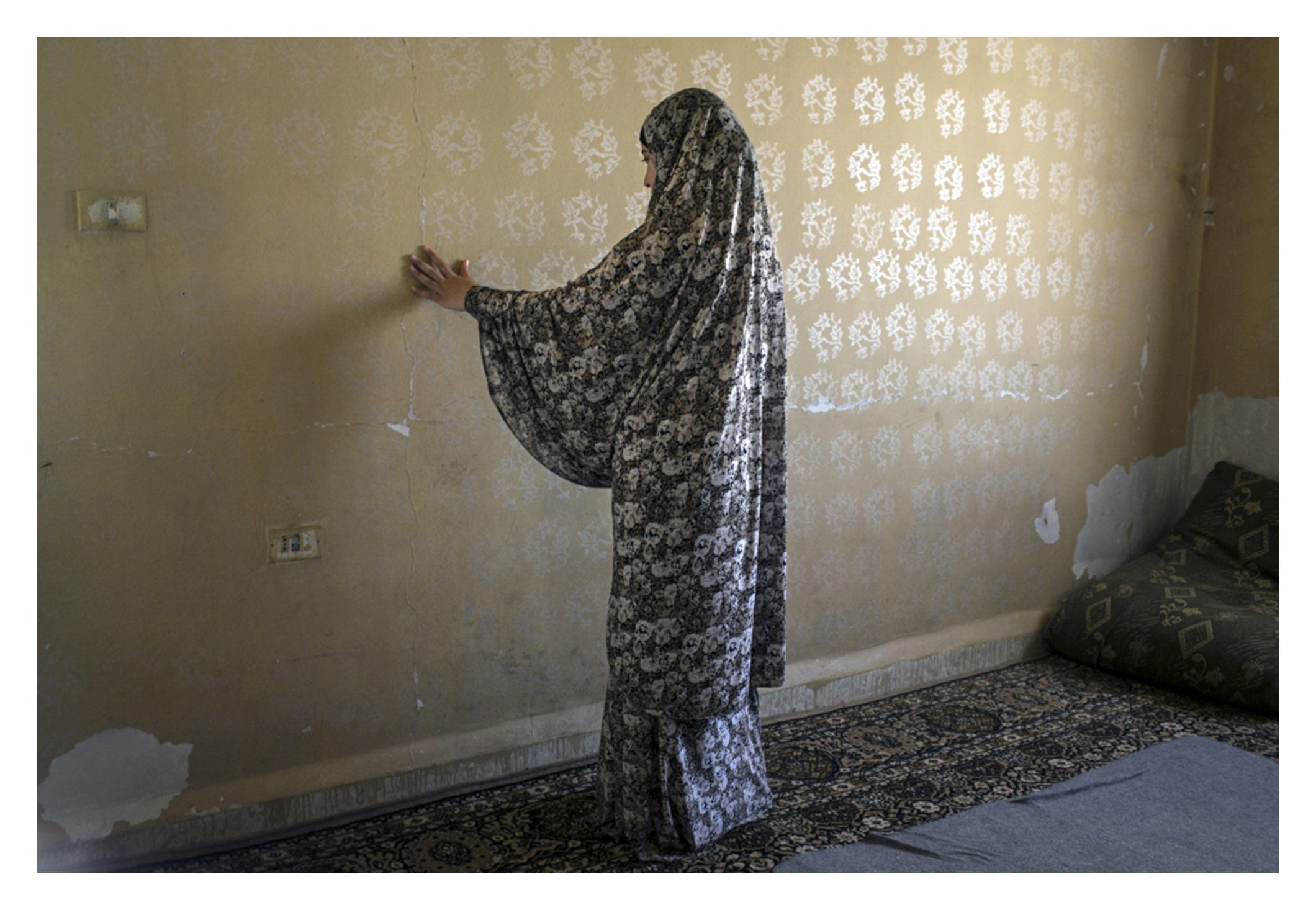
"Kill me instead." Fadia, 19, traces the cracks in her rented apartment as she describes death of her father. He was killed in his bed, returning home from his work exhausted, as a laborer. Shortly before morning prayers, the security forces entered his room and shot him “execution style” in his head. The shot prompted his teen son to scream, so the guns were turned on him. She screamed, “Kill me instead.” They then turned and left. Fadia says “When I heard the bullet sound that killed my father, my heart shattered. I have never felt whole again.” She now lives with her aunt Hadia Naifeh, 55 years old, heads a crowded one-bedroom apartment of 15 family members. They fled outskirts of Damascus in truly horrific manner. Hadia is a widow with four girls and one boy. Her only son (27) was arrested at start of unrest. The murder of her brother prompted family to flee to Jordan, but they just lost WFP food coupons. They are hungry. Fadia now collects bread from garbage cans, waits till dark to pilfer though trash cans to find bits of bread. She spends hours drying them, breaking them into tiny pieces for around 2 USD for a day. (Farmers buy it for their sheep). Hadia goes into night with & her two-year-old grand daughter (she thinks it is an adventure) and teen nephew as she pushes her invalid father's empty wheel chair through the dark streets (she uses it as a trolley). She receives one JoD and half she receives for this work.
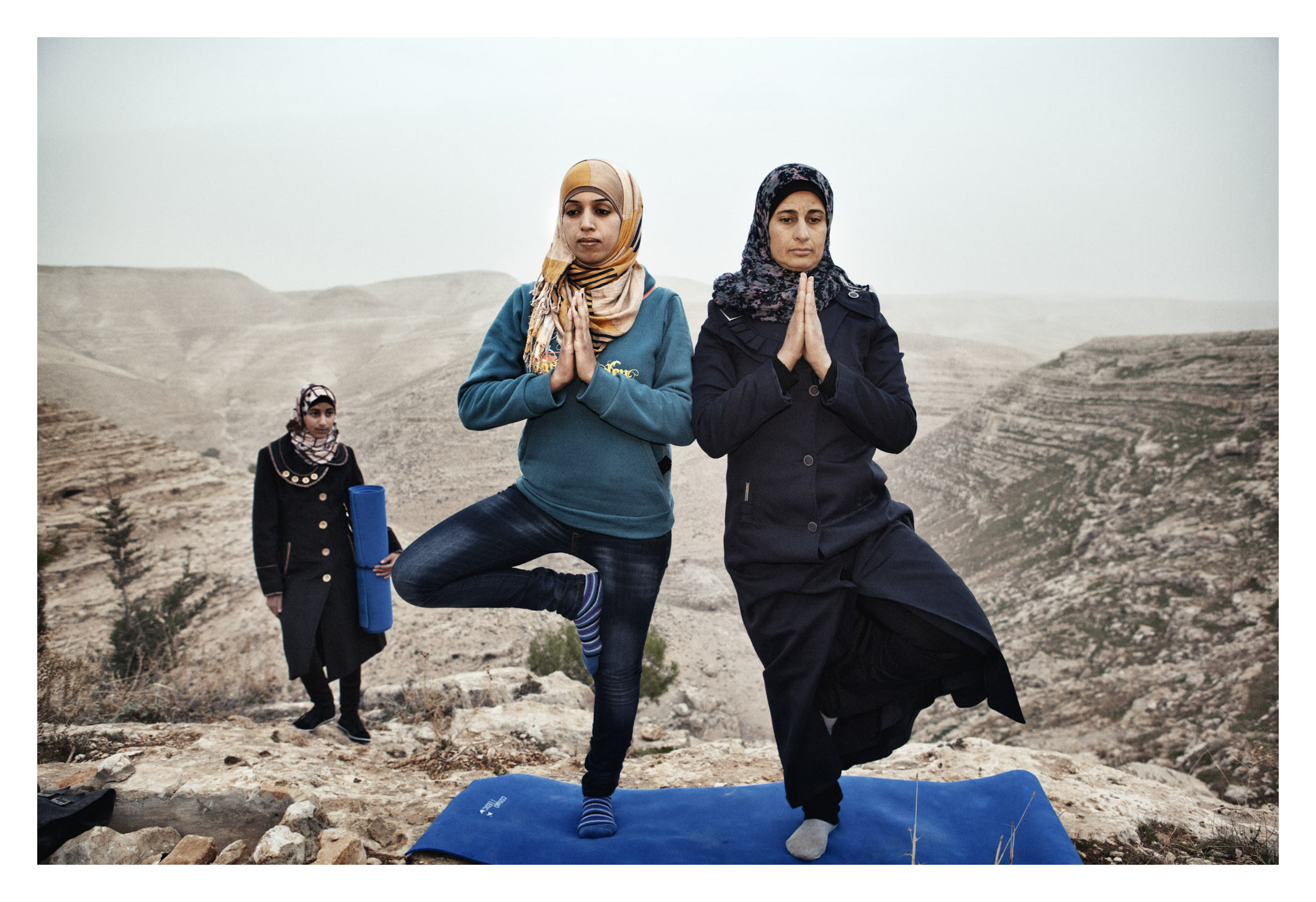
Occupied Palestinian Territories, West Bank, Za'tara, 06 January 2013 Hayat (left) teaches yoga to the residents of her village, Zataara, on the outskirts of Bethlehem in the West Bank. The women are increasing in number each week.
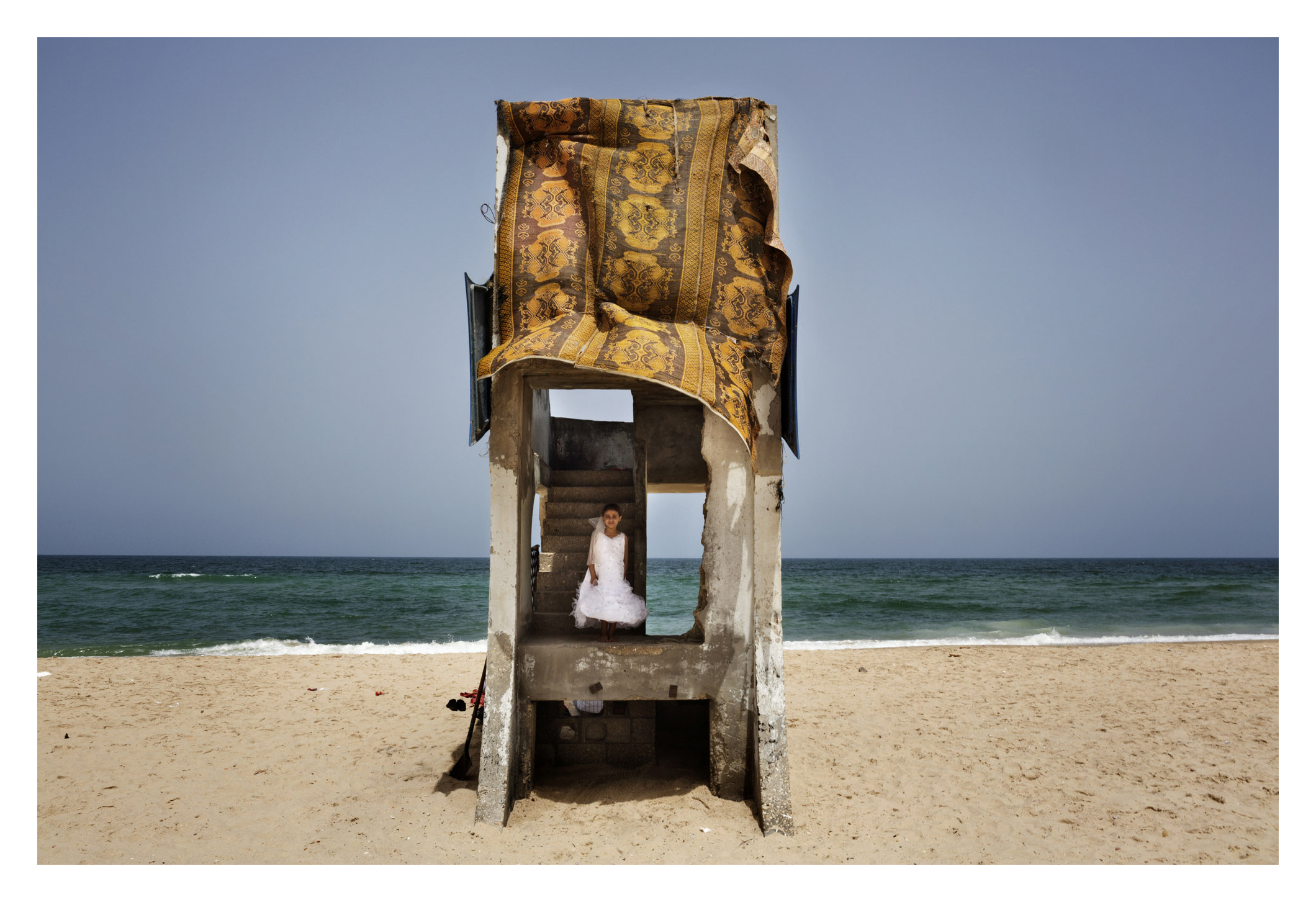
A young girl plays on the beach in the party dress she wore the night before at a wedding, at the Deir al-balah Refugee camp in Gaza.
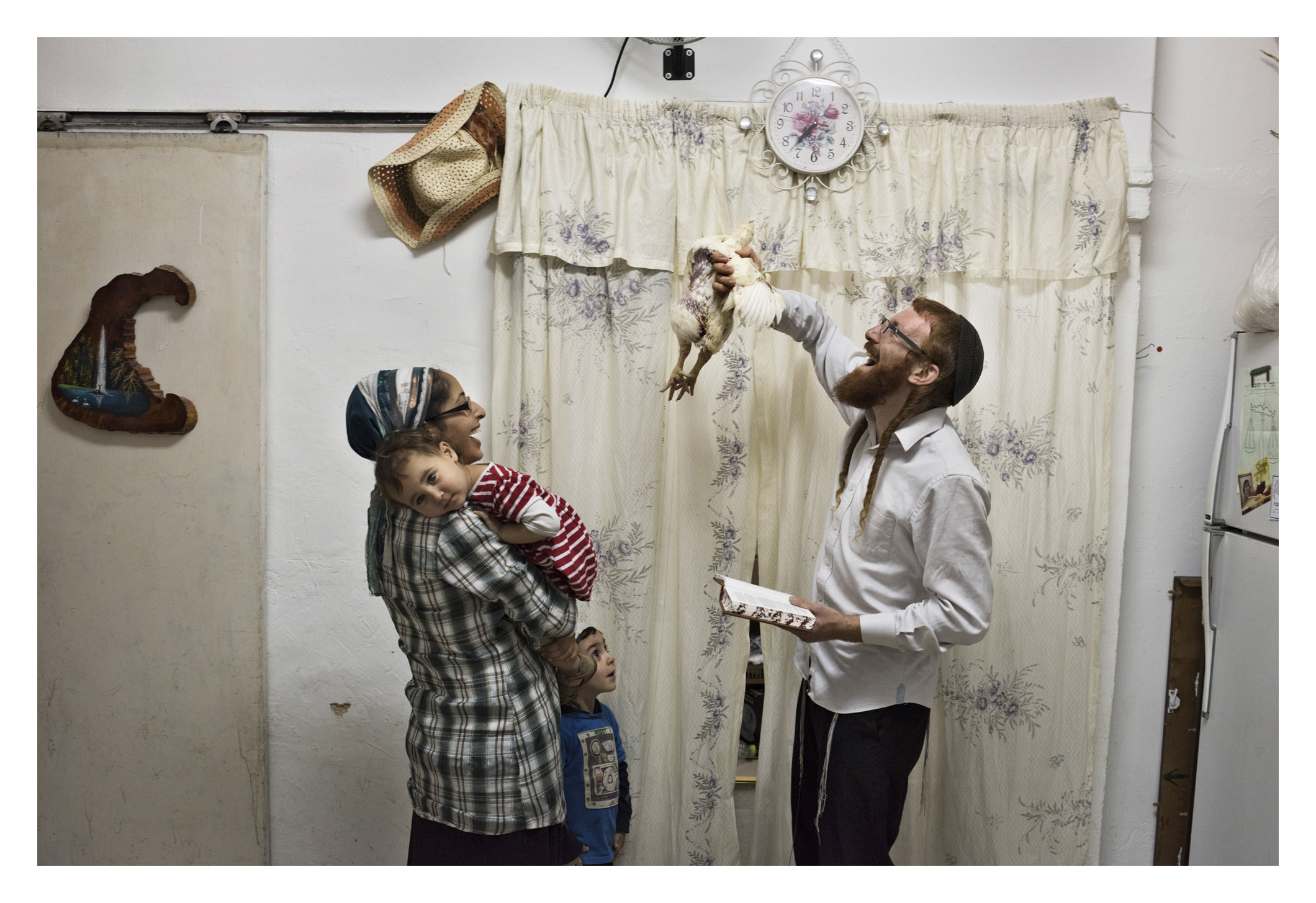
Yossef is a follower of Rabbi Nachman of Breslav, a lighter, more mystical version of Judaism that appears stringent to secular Israelis but is borderline psychedellic to the ultra-Orthodox neighborhood of Mea Shearim, where he was born and raised. He buys a chicken for the yearly "kaparot" ritual - the passing of one's sins onto a chicken that is ritually killed and is given to the poor for a holiday meal. Yossef loves animals; he always brings home strays, despite orthodox Judaism's ambivalent approach to pets, and normally he donates money to charity directly, but this year he wanted to acquiant his son with the sacrifice. He talks to the chicken, feeds it a children's snack and solemnly wipes its bottom when it defecates on his spotless kitchen floor. He works in real estate and is about to move to a settlement; he's not into politics but says atmosphere there is so much more liberal than in the largely anti-Zionist, ultra-conservative Mea Shearim. The chicken flutters onto his shoulder. He grabs it by the feet, gently spinning the chicken over his sons head while reading the relevant invocation; and walks it off to slaughter.
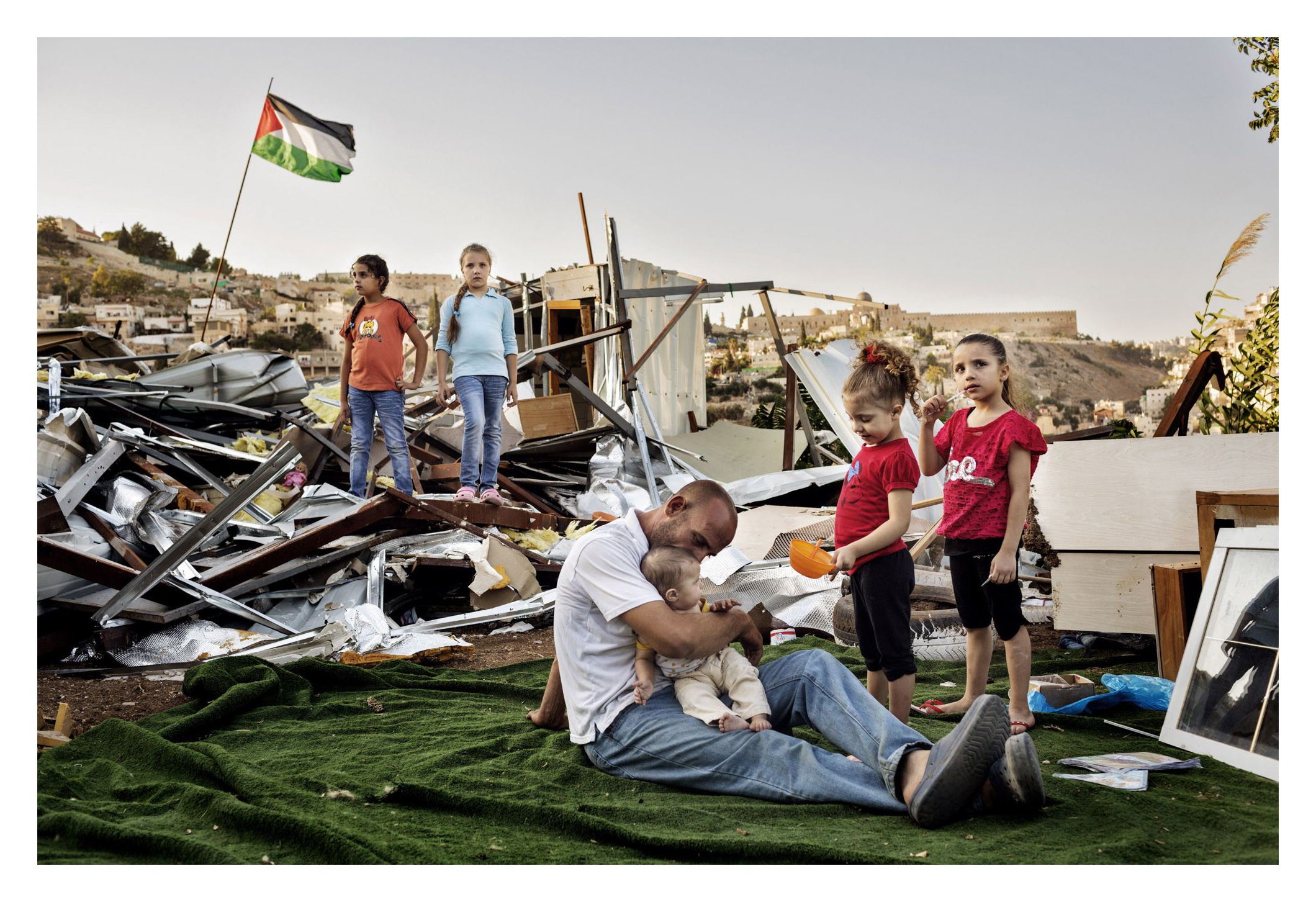
Occupied Palestinian Territories, West Bank, East Jerusalem, 17 September 2013 Khalid Zir and his five daughters take a break beside the ruins of their demolished home, in the East Jerusalem neighborhood of Silwan.
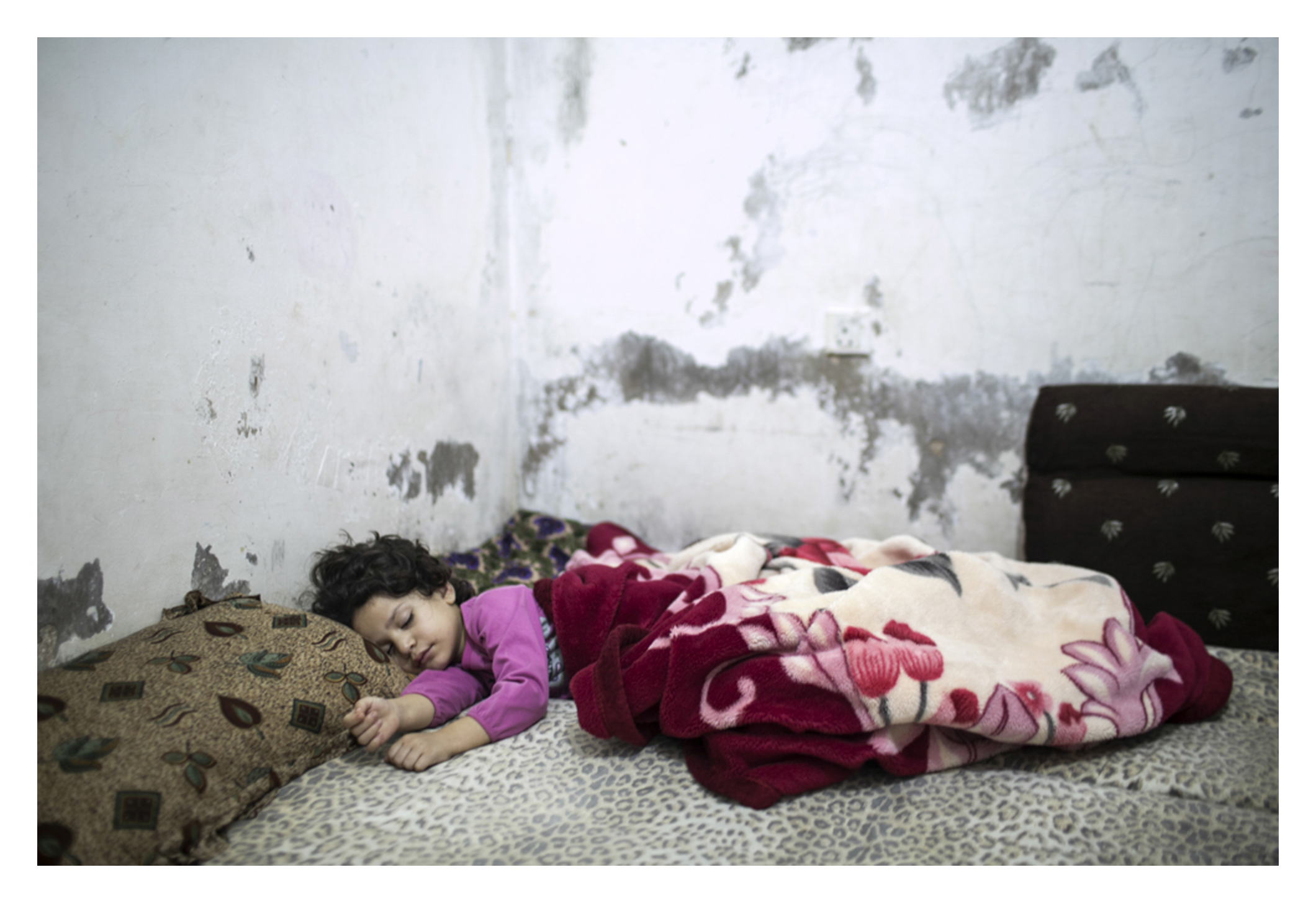
Five year old urban refugee reluctantly awakes to start her day. An urban refugee family (refugee from Syria) are struggling to survive. Their father, Maher, 43, was paralyzed after he received an injection while he was in prison. Both the mother, Farah, has thalassemia, and their youngest daughter. UNHCR cleared them for cash assistance, which will be a lifesaver for the family. They pay 150 Jordanian dinars a month for a small, cold, and leaking apartment. Their only form of income is from the mother (she earns five Jordanian dinars a day as a maid) and from their 14-year-old son, Yazan. Yazan is 14 with a heart birth defect. He works at a bakery, a distance of half an hour walk, working from 7 till 10 at night for 7 JDs a day. ‘I can’t bear my mother working as a maid,’ Yazan says. He cannot find time to work in school, and returns home so exhausted his family watch him sleep and cry, they say. Their 12-year-old daughter Lamis helps with the house chores when her mother goes to work. She goes to school at 12:30, and comes back at 4:30. Through her work cleaning at the institution, Farah has secured a position at a private day care for her youngest daughter. Farah walks every day in the street looking for a job, asking if people need help in the house for cleaning.










